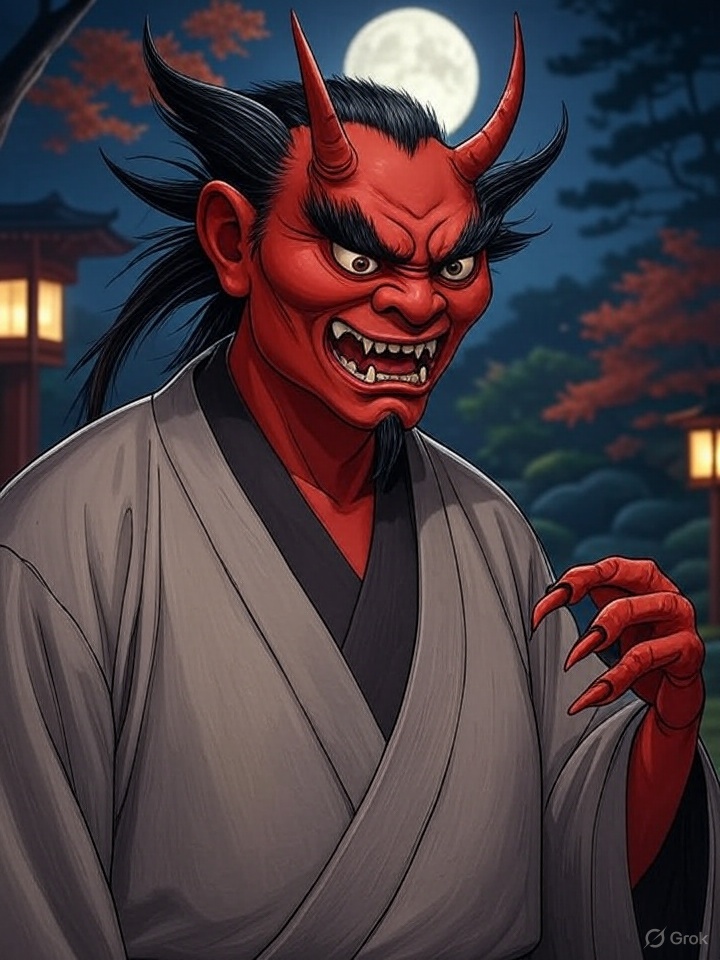Name Meaning
Oni (鬼) translates directly as “demon” or “ogre” in Japanese, referring to monstrous creatures often depicted with horns and tiger-skin loincloths.
Origin
- Rooted in Buddhist and Shinto traditions.
- Oni were originally spirits that punished the wicked in the afterlife, later evolving into symbols of evil and mischief.
- Linked to Setsubun rituals, where beans are thrown to drive them away.
Appearance
- Typically depicted with red or blue skin, horns, sharp claws, and wild hair.
- Often carries iron clubs called kanabō.
- Can be male or female, though male forms are most common.
Behavior & Myths
- Portrayed as evil-doers who devour humans, torment sinners, or attack villages.
- Sometimes reformed or act as guardians in temple gates (niō).
- In popular tales, they are often defeated by clever humans or monks.
Symbolism
- Symbolize destruction, punishment, and the darker side of nature.
- In festivals, represent evil to be cast out for good fortune.
- Also used to warn children and reflect internal demons in literature.

